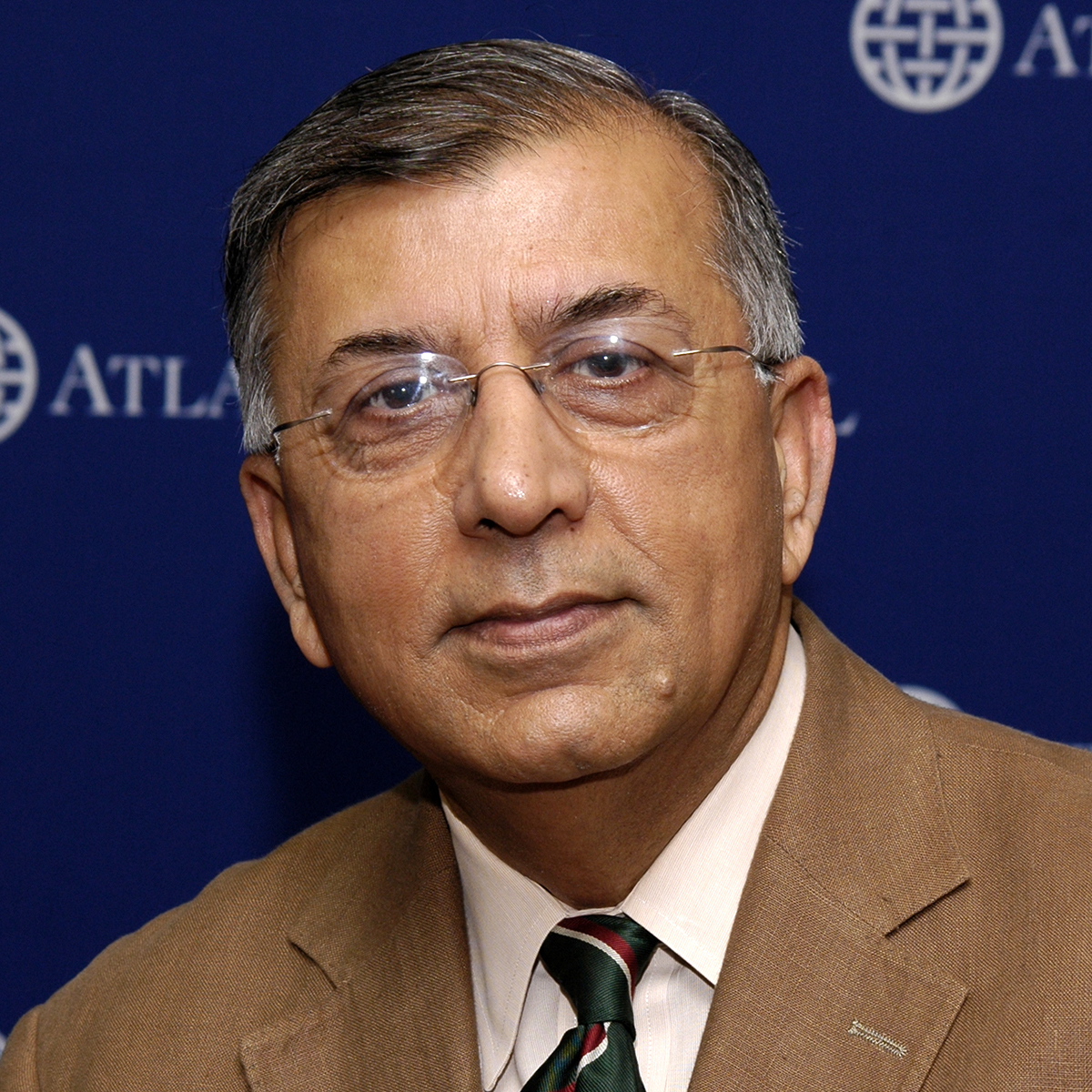
In an exclusive interview with Kamna Arora of Zeenews.com, Shuja Nawaz, director of the South Asia Center at the Atlantic Council, discusses the current turmoil in Pakistan.
The interview, courtesy of zeenews.com, can be found below:
Pakistan is in a mess. A brewing political crisis over corruption, presidential immunity, and Memogate scandal has pushed Pakistan on the brink of chaos. The political turmoil has all but paralysed governance in Pakistan. The hopes of the US to rebuild ties with Pakistan after the deadly NATO raid in 2011 have also faded.
The civilian government, which is already under fire for the economic woes faced by the masses, is locked in a conflict with the Army over a secret memo asking for the US’ help in preventing a coup in the aftermath of the American raid that killed Osama bin Laden in May last year. The revelation put a question mark on the fate of Pakistani government, which prides itself of being the longest-running civilian administration in the South Asian country’s coup-marred history.
Kamna: Is there any likelihood of a coup in Pakistan?
Nawaz: A coup is always possible, but seems highly improbable. The public conditions are not ripe. The Army is disinclined to step into things directly. Conditions would have to deteriorate rapidly and badly for that to be justified.
Kamna: How do you read Gilani’s move to appear before the SC at a time in Pakistan when the government, military and judiciary are at loggerheads? Will his move calm brewing tensions among the institutions in Pakistan?
Nawaz: He is the ‘Great Mollifier’ and ‘His Master’s Voice’ at the same time, and will try to buy the government time until the Senate elections when it will be in a stronger position politically. If things turn out badly after the next hearing on February 01, he may offer himself as the sacrifice to stave off further action against the government of President Zardari. Gilani’s appearance on January 19 before the Court was a victory for the Court and for the rule of law in Pakistan.
Kamna: It is suspected that the military is using the judiciary to topple the current government before the March polls for the Senate, which the PPP is expected to win. In such a case, can one conclude that the judiciary is compromised in Pakistan?
Nawaz: I do not buy the conspiracy theories about the military-judiciary alliance. It is too glib an explanation. There are mutual suspicions that preclude them working together. They may have converging aims but operate on parallel tracks. The judiciary also has on its docket a case against the ISI on the missing persons’ case, among other things. The military would be wary of that becoming an issue again. The court has too much to lose to become associated with the military or any single political party.
Kamna: The deepening row between the government, and Army and judiciary has led to renewed concerns over the stability of Pakistan. How would that affect the whole region?
Nawaz: The state is still viable and relatively stable. The government has weak legs. It can rectify the situation with bold economic actions to stave off a deepening recession and heightened inflation. An unstable Pakistan has consequences for the whole region, from Afghanistan to India. Therefore, one must look to normalisation with India as key to stability in the region. India has a chance to contribute to that stability by reducing Pakistan’s paranoia about its intentions and actions in the region against Pakistan. Pakistan must try to reduce India’s fears about fomenting unrest via proxies, past, present, or future. Open borders and trade are going to be keys to these efforts.
Kamna: No civilian government in Pakistan has ever finished its term. What chance do you think Zardari’s government has of being the first civilian government in Pakistan’s history to serve its full term?
Nawaz: A full term is not the key. A natural end to the term is a more appropriate way of looking at this situation. If the government fails to engender trust, it must be prepared to depart through constitutional means via a vote of no confidence in Parliament or by calling for fresh elections. There is nothing sacrosanct about completing a full five-year term. If the current government shows it wants to solve Pakistan’s structural problems, it may win another election this year, short of the end of its term, and come back stronger than before. But it has to show its bona fides in that regard with actions and not words. It still has that opportunity.
Kamna: How can the whole crisis between the Army and the government be defused?
Nawaz: Frequent, direct, and honest communications. No game playing; and no playing to the gallery of public opinion. They tend not to listen to each other and avoid tough questions. The government needs to take ownership of the fight against militancy and not outsource it to the military. There is no military solution to the insurgency and militancy.
If General Kayani says he wants to shun politics, take him up on his word. And begin to govern effectively so he or his successor does not become the default option of the disaffected masses. Don’t try to bring external actors into this discussion, domestic or foreign. Civilian supremacy is enshrined in Pakistan’s Constitution. Government must earn the right to that supremacy by its vision, performance, and honesty. But, as the Urdu saying goes, “In this Hamaam, everyone is naked!”